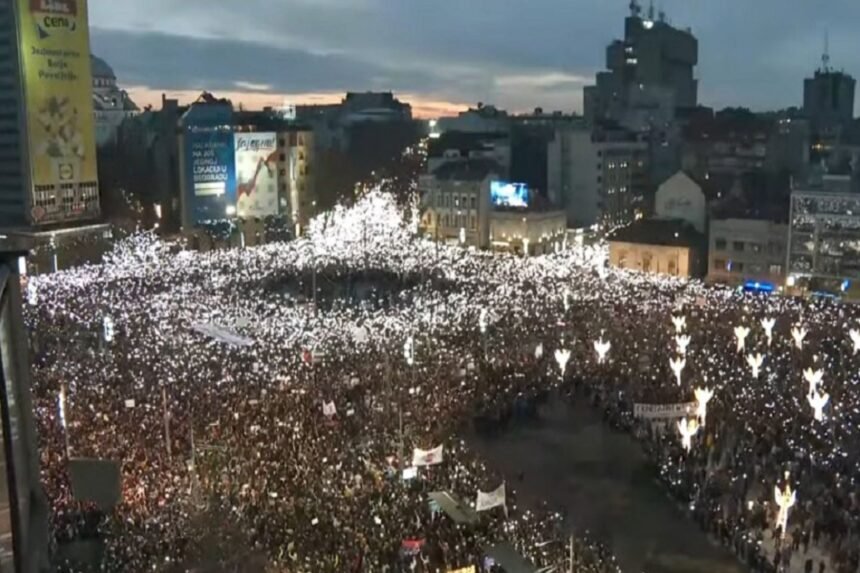A wave of discontent in Serbia has led to the announcement of a general strike set to take place on January 24. The strike, initiated by educators, has garnered support from a growing number of companies, media outlets, cultural institutions, and other sectors.
Broad Participation
Prominent media platforms, including Nova.rs, Danas, Radar, and TV Nova, along with the IT community and major bookstores and publishers in Belgrade, have joined the strike. Cultural institutions, such as the Belgrade Cultural Center, will close their doors, as will cinemas, cafes, and even renowned businesses like Ferdinand pastry shop and Identity Store.
Nightclubs and other entertainment venues are also set to participate, with the movement gaining traction across various sectors.
Legal Context and Criticisms
The strike operates under Serbia’s 1996 Strike Law, which defines a strike as “a cessation of work organized by employees to protect their professional and economic interests.” However, experts have criticized the law for being outdated and not aligning with international standards.
Labor law expert Mario Relanović pointed out that the law primarily governs strikes at the employer level, neglecting broader general strikes. “A general strike is a form of civil disobedience aimed at expressing dissatisfaction with specific policies or practices,” he explained.
Student-Led Momentum
Students have taken a leading role, urging citizens to support a “total shutdown” on January 24. They called on workers to skip work, employers to cancel activities, and individuals to donate blood or take medical leave if they fear repercussions.
The students’ demands include:
- Disclosure of documents regarding the Novi Sad train station reconstruction, linked to the deaths of 15 people.
- Suspension of criminal proceedings against arrested students.
- Prosecution of those responsible for attacks on students and faculty.
- A 20% increase in the higher education budget.
Government Response
From the World Economic Forum in Davos, Serbian President Aleksandar Vučić responded to the strike, dismissing its basis. “We don’t need violence. We’re open to discussions with students and all parties to understand which demands remain unmet,” Vučić stated.
He also criticized the movement, labeling some participants as irrational. “I see some declaring they won’t go to the gym tomorrow or will buy bread earlier. There’s a lot of madness in this country,” Vučić added.
Implications
With growing public dissatisfaction and cross-sector participation, the strike marks a significant moment of unrest in Serbia, reflecting deep-seated frustrations with governance, transparency, and socio-economic policies.







